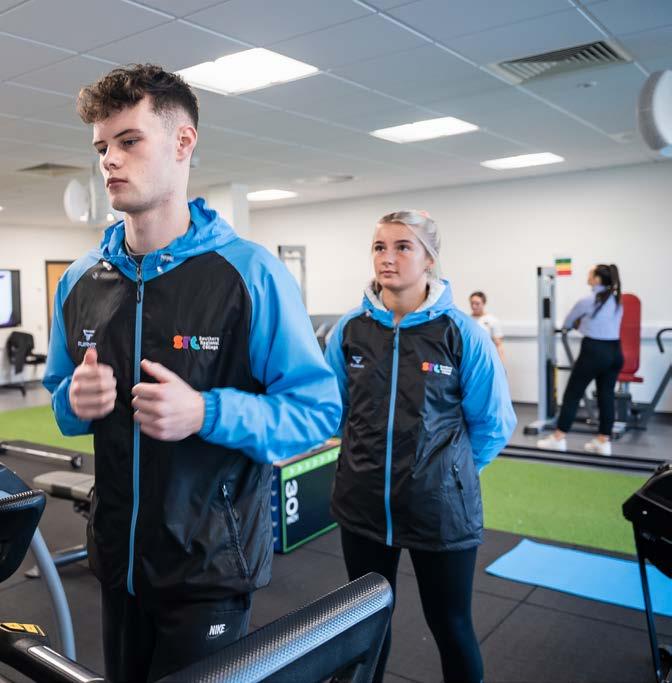
2 minute read
Admissions & Entry Requirements
The College may use any information pertaining to the applicant’s skills, capability, competence or attributes, which is publicly available or presented to the College as part of the application process, to make an informed, objective and professional decision on the applicant’s ability and likelihood of the applicant to complete the programme successfully.
The College will advise applicants on their likelihood of achievement based on the evidence available and indicate what evidence they have used to reach such a decision. The College will always seek to offer alternative provision at a more suitable level or vocational area if such options are available.
Information relating to Criminal Convictions and Public Protection Arrangements Northern Ireland (PPANI) may have an impact on admission.
Where an applicant has additional needs arising out of their learning difficulty or disability the College will carry out such assessment(s) as required to: a) Assess the applicant’s suitability to attend the College or to enrol on a specific programme b) Identify and assess any risks which may arise out of the applicant’s learning difficulty and/or disability c) Identify and assess any needs which the applicant may have arising out of their learning difficulty and/ or disability d) Identify any adjustments which may be required to enable the applicant to attend the College or study on a specific programme e) After taking into account the College’s facilities and resources, whether adjustments can reasonably be made

The College will make reasonable adjustments to ensure support for any applicant with a learning difficulty and/or disability to assist them in the admissions and enrolment process and in the progression and completion of their studies. There may be times, after taking account of the College’s resources, the student’s ill health or behaviour requires support beyond the expertise or capacity the College can reasonably offer.
Southern Regional College is an inclusive College and welcomes students from across the globe. All courses at the College are delivered in the English language and prospective learners need to demonstrate they have a satisfactory level of fluency to fully benefit from their course of study. As such, learners for whom English language is not their primary language are required to have obtained an ESOL qualification with a pass grade for all four skills (reading, writing, speaking and listening) at Level 1 (B2) or Level 2 (C1) (or equivalent) depending on the course being applied for and which has been obtained within the last two years. The College reserves the right to refer any applicant to appropriate English language classes until their level of fluency in English is sufficient to allow full participation in all areas of study.
The College encourages and supports increased targeted widening participation, which includes the support of applicants from the following groups:
• Under-represented groups
• Applicants with learning difficulties and or disabilities
• Applicants with physical disabilities
• Applicants on the autistic spectrum
• Applicants not engaged in education or training
• Applicants impacted by mental health
• Care experienced applicants
• Lesbian, gay and bisexual applicants
• Transgender applicants
• Applicants who are carers
• Applicants who are asylum seekers
The College may vary the admissions criteria for any programme at any time up to the point of enrolment.
Any offer is conditional on: a) Sufficient resources to operate the programme b) Authority from the appropriate awarding body to offer the programme, and c) Sufficient applicant numbers to ensure the viability of the programme









